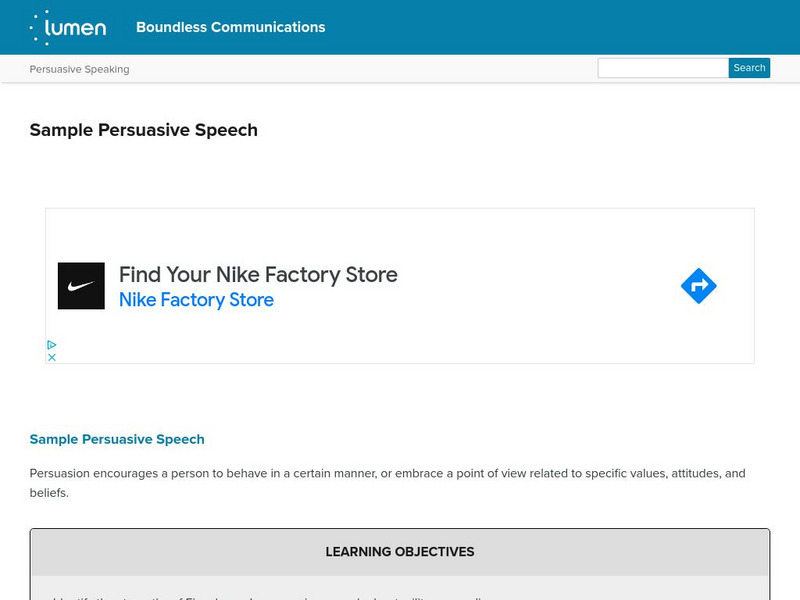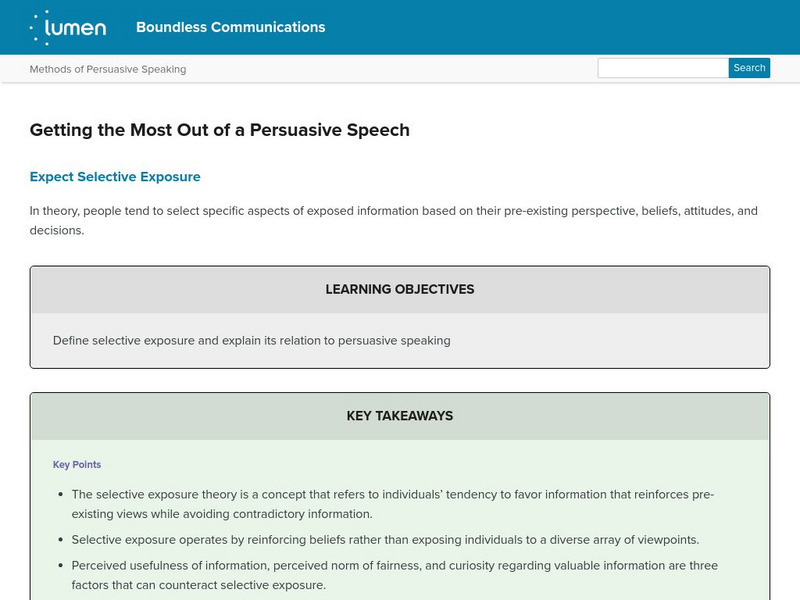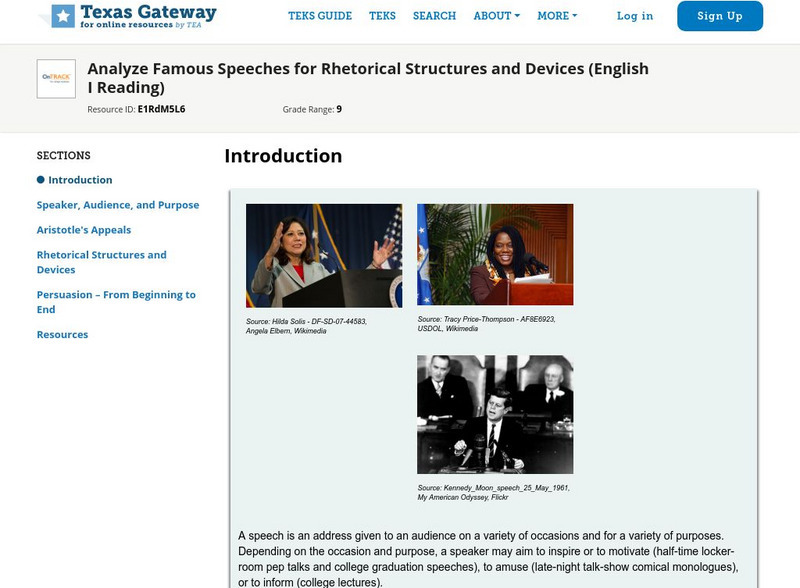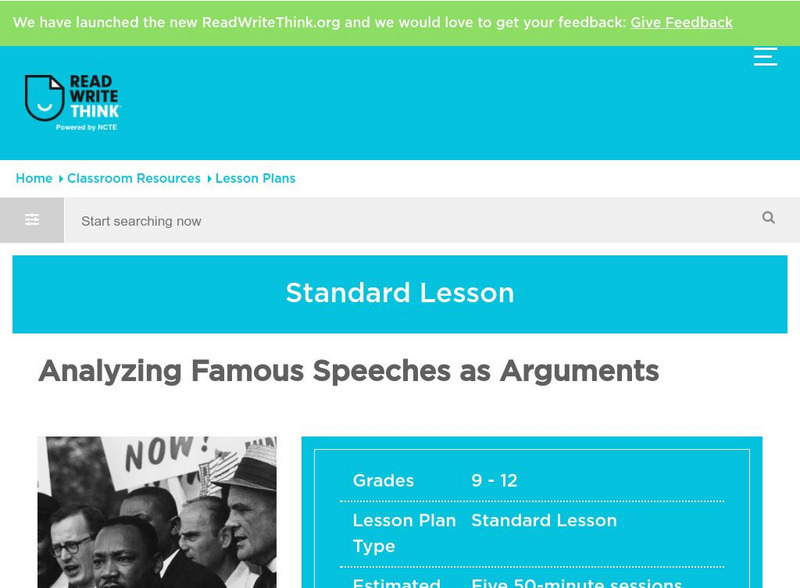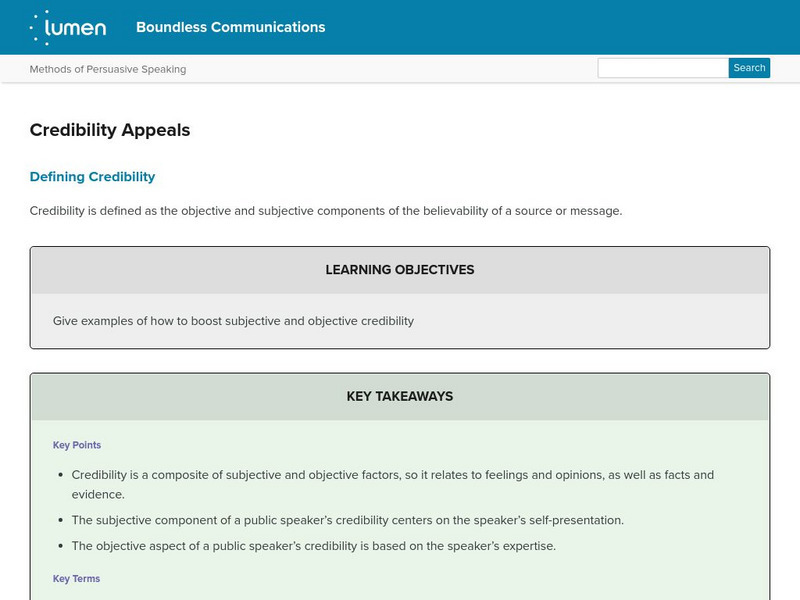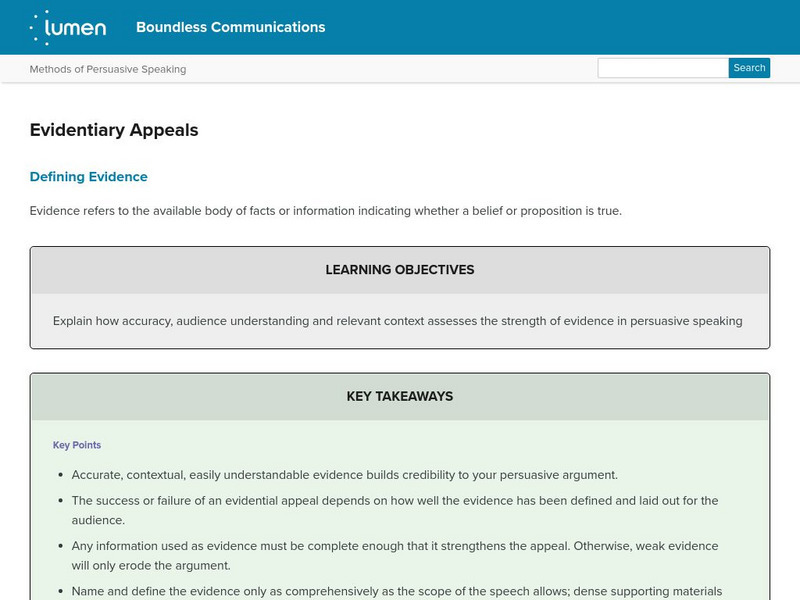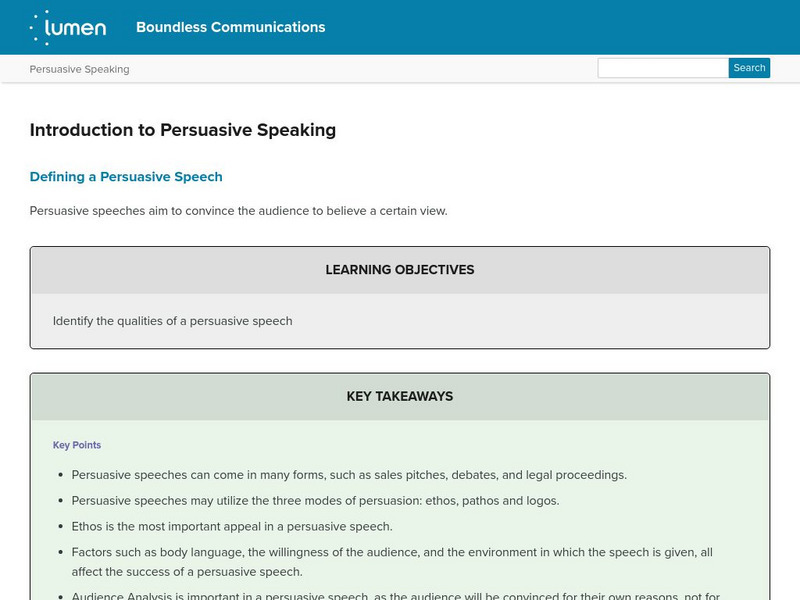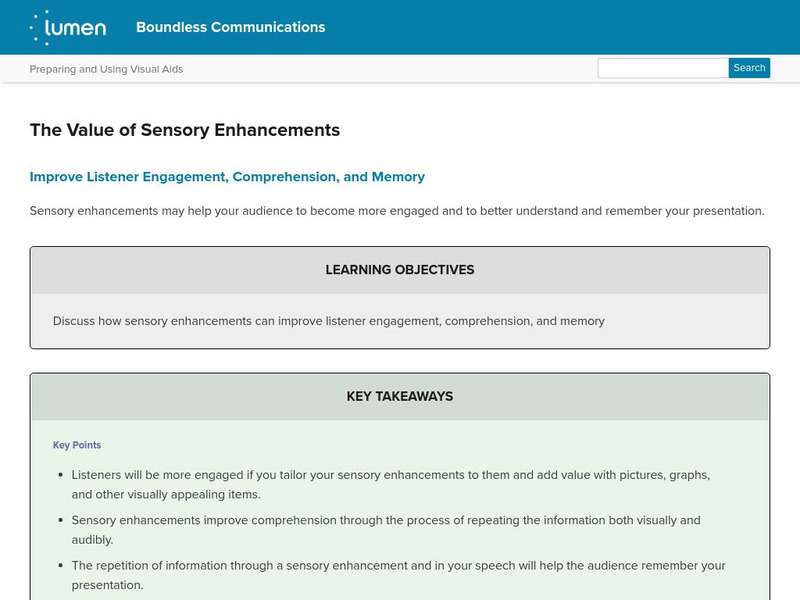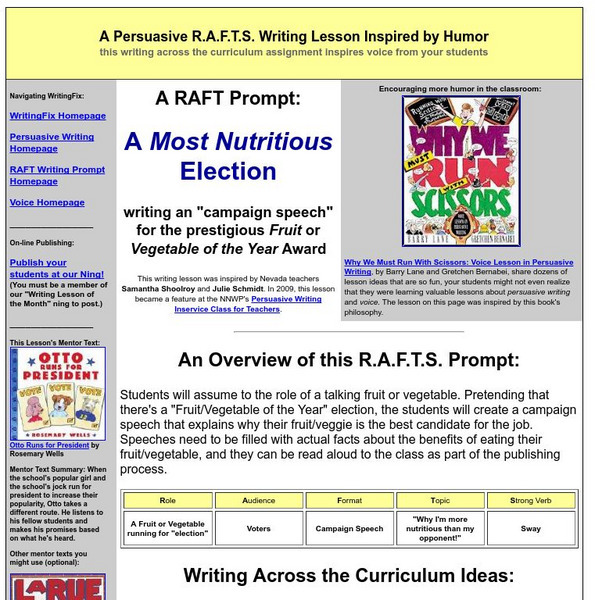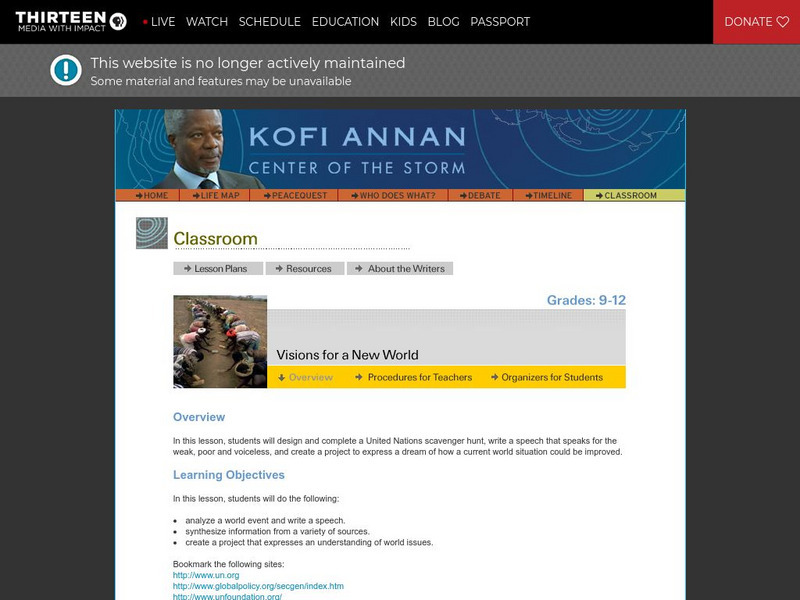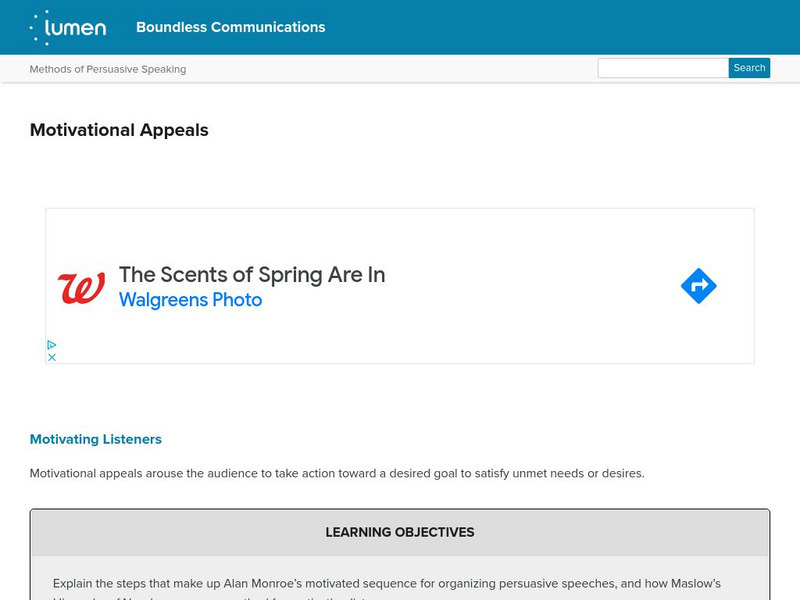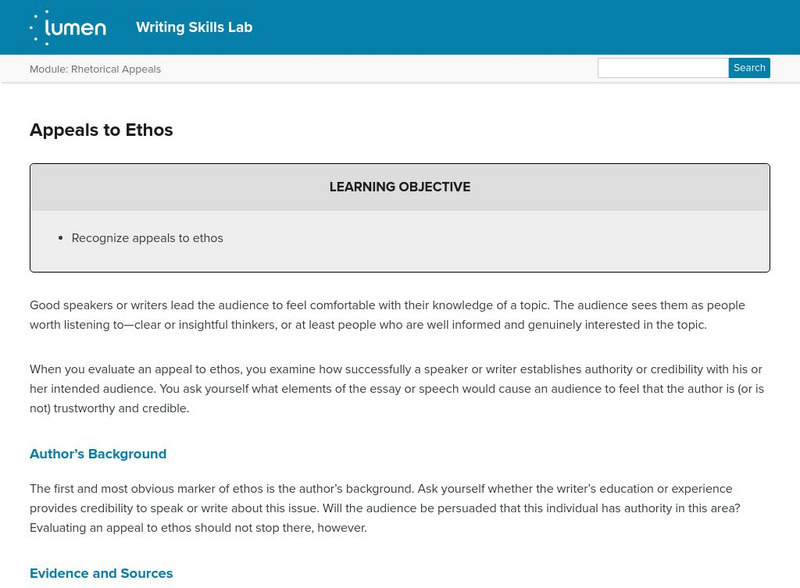Lumen Learning
Lumen: Boundless Communications: Sample Persuasive Speech
This lesson asks young scholars to identify the strengths of Eisenhower's persuasive speech about military spending. A link to the audio version of President Dwight D. Eisenhower's speech "Chance for Peace" on April 16, 1953.
Lumen Learning
Lumen: Boundless Communications: Getting the Most Out of a Persuasive Speech
This lesson focuses on presenting a good persuasive speech. It discusses the selective exposure theory, kinds of appeals, and expectations.
Texas Education Agency
Texas Gateway: Analyze Famous Speeches for Rhetorical Structures and Devices
In this lesson, you will learn to analyze persuasive speeches and examine the impact of rhetorical structure and the use of devices in famous speeches. It includes activities such as matching quotes from famous speeches to the speakers...
Lumen Learning
Lumen: Boundless Communications: Types of Public Speeches
This lesson focuses on the types of public speeches including informative, persuasive, and speeches for special occasions. It also discusses the difference between informative and persuasive speeches. SL.11-12.6 Speaking tasks
ReadWriteThink
Read Write Think: Analyzing Famous Speeches as Arguments
This multi-session lesson features the opportunity to analyze a variety of famous speeches. Students will look carefully at tone, rhetoric, propaganda techniques, and historical context as they write an analysis paper....
Lumen Learning
Lumen: Boundless Communications: Credibility Appeals
This lesson plan focuses on using credible appeals in persuasive speeches including defining subjective and objective credibility, the types and elements of credibility, and the ethical use of credibility appeals. CCSS.ELA-Literacy.CCRA.W.8
Lumen Learning
Lumen: Boundless Communications: Evidentiary Appeals
This activity focuses on the use of evidentiary appeals in persuasive speeches including definition, evaluating your evidence, and strategies for using evidence effectively. Click on next at the bottom right to continue.
Lumen Learning
Lumen: Boundless Communications: Logical Appeals
This lesson focuses on using logical appeals in persuasive speeches including inductive and deductive reasoning, inductive reasoning and associative reasoning, forming a rational appeal, and errors in reasoning-formal and informal.
Lumen Learning
Lumen: Boundless Communications: Introduction to Persuasive Speaking
This lesson focuses on persuasive speaking including identifying the qualities, components, goals, and ethics of persuasive speaking.
ReadWriteThink
Read Write Think: Creating a Persuasive Podcast
This lesson unit has students research a local, state, national, or international issue of personal interest and create and share a two-minute persuasive podcast presenting their research-based opinions on the topic. It includes tools...
ReadWriteThink
Read Write Think: Exploring Free Speech and Persuasion in "Nothing but the Truth"
Contains plans for five lessons that use Avi's "Nothing But the Truth" to teach about free speech and give students an opportunity to develop persuasive arguments. In addition to objectives and standards, this instructional plan contains...
Lumen Learning
Lumen: Boundless Communications: The Value of Sensory Enhancements
This lesson plan focuses on the value of using sensory enhancements in presentations including improving listeners comprehension, choosing the right visual aids, and preparing and understanding your visual aids.
Lumen Learning
Lumen: Boundless Communications: Types of Sensory Enhancements
This instructional activity focuses on the types of sensory enhancements and how to effectively use them. SL.9-10.2 eval & integrate sources, SL.9-10.5 Audio Visuals
Writing Fix
Writing Fix: Guilty or Innocent
A writing lesson plan using the R.A.F.T. model and the short story "The Scarlet Ibis" by James Hurst. Young scholars take on the role of attorneys and write persuasive speeches for the jury proclaiming the narrator's guilt or innocence.
Writing Fix
Writing Fix: A Most Nutritious Election
In this lesson students will write a persuasive speech for the Fruit or Vegetable of the Year Award. Nutrition information should be incorporated into this cross-curricular lesson.
Lumen Learning
Lumen: Boundless Communications: Emotional Appeals
This lesson focuses on emotional appeals in persuasive speeches including defining emotional appeals, their purpose, examples, components, and production. It also discusses the ethical use of emotional appeals and manipulation.
PBS
Wnet: Thirteen: Visions for a New World (Lesson Plan)
A lesson for exploring the ways in which Kofi Annan has spoken for the weak, poor, and voiceless. Learners analyze a world event and then express a dream or a vision of how the situation could be improved.
PBS
Pbs Learning Media: Public Speaking and Persuasion: Improve Your School!
In this lesson, students watch two videos from China depicting public speeches about the first school government election. Then, they will create and give persuasive presentations of their own that will describe ways in which they would...
TES Global
Tes: Schemes of Work: Speaking and Listening
[Free Registration/Login Required] This series of lessons will engage students in analyzing the pros and cons of hunting. Students will also develop their own persuasive speeches about corporal punishment.
Lumen Learning
Lumen: Boundless Communications: Speaking in the Real World
This lesson focuses on providing practical tips for speaking in a non-academic setting such as a wedding, charity event, or interview.
Lumen Learning
Lumen: Boundless Communications: Motivational Appeals
This lesson plan focuses on motivational appeals and what motivates people including a list of 16 basic motivators, Maslow's Hierarchy of Needs, and Monroe's motivated sequence.
Lumen Learning
Lumen: Rhetorical Appeals: Appeals to Ethos
This lesson focuses on appeals to Ethos, When you evaluate an appeal to ethos, how successfully a speaker or writer establishes authority or credibility with his or her intended audience. You ask yourself what elements of the essay or...
Scholastic
Scholastic: American Dream: I Have a Dream
Use Martin Luther King, Jr.'s "I Have a Dream" speech to talk about the American Dream, word choice, and persuasion.
